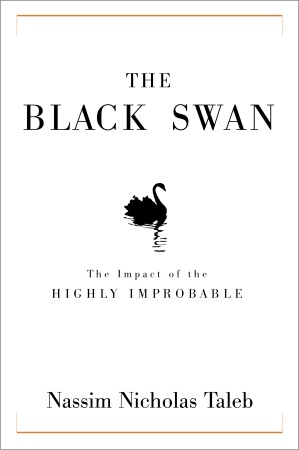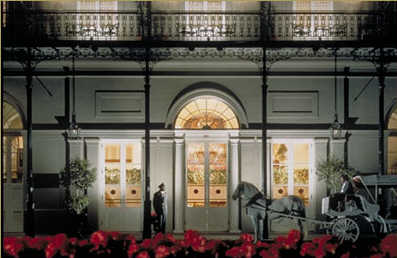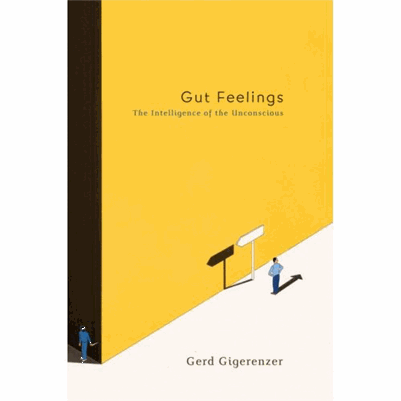Filed in
Programs
 Subscribe
Subscribe to Decision Science News by Email (one email per week, easy unsubscribe)
THE IMPACT OF THE HIGHLY IMPROBABLE

Decision Science News, the new Economics of Behaviour and Decision-Making Seminar, and the London Business School Centre for Marketing invite you to an Evening Seminar on:
“The Impact of the Highly Improbable”
with Nassim Nicholas Taleb
(Visiting Professor, London Business School)
At this evening seminar, we are delighted to welcome Nassim Taleb who will be discussing the impact of the highly improbable. In this seminar he presents the role of the rare events across history, the arts, technology, and business and economic life. He discusses the psychological processes and biases that causes us to misunderstand them: retrospective distortion, silent evidence, narrative fallacy, as well as the scientific errors leading to the underestimation of the role of these events. Nassim Nicholas Taleb is an essayist, applied statistician, and veteran “quant”/ trader focusing on the multidisciplinary aspects of high-impact rare events (“Black Swans”). Taleb is the author of the NYT Bestseller The Black Swan: The Impact of the Highly Improbable, New York: Random House and London: Penguin (2007), as well as Fooled By Randomness (2005, 2001) and Dynamic Hedging: Managing Vanilla and Exotic Options, J. Wiley (1997).
Date: Monday 24th September 2007
Venue: London Business School Lecture Theatre 1
Registration: 17:00 Seminar: 17:30 – 19:00
Followed by a drinks reception
NOTE: This talk is “sold out”, but we can accept 20 more people on the list because of a predictable percentage of no-shows. People on the waiting list will be emailed if there is still room.
HOW TO JOIN THE EMAIL LIST: To subscribe to the seminar series email list, please visit http://www.feedburner.com/fb/a/emailverifySubmit?feedId=1061080&loc=en_US
to opt in. You can easily unsubscribe anytime. Pass this message on to those interested in joining the mailing list.
The full schedule of talks at the Economics of Behaviour and Decision Making seminar series is maintained at http://www.decisionresearchlab.com/ebdm/
Lionel Page (Westminster Business School)
Dan Goldstein (London Business School)
DATA GEEKS REJOICE

DSN recommends this workshop for decision researchers interested in the making the most of the rich social data that is increasingly available online.
This workshop addresses a new online phenomenon: social data analysis, that is, collective analysis of data supported by social interaction.
In the last few months a new class of web site has emerged that enables users to upload and collectively analyze many types of data. These systems range from pure research projects to commercial business ventures. Sites like Many Eyes, Swivel and Data360 have attracted visualization fans, data geeks, journalists, scientists, and concerned citizens. The blogosphere has also taken notice, and bloggers frequently post about the ways in which they use these sites, the visualizations they create, and the data they upload.
The goals of this workshop are to:
1) Bring together, for the first time, the social data analysis community
2) Examine the design of social data analysis sites today
3) Discuss the role that visualizations play in social data analysis
4) Explore how users are utilizing the various sites that allow them to exchange data-based insights.
We seek researchers and practitioners whose work explores social data analysis and/or social uses of visualizations. We hope for a lively mix of people actively involved in building sites and academics who study the dynamics of social software.
Submitting:
Individuals interested in participating should submit a 2-4 page position paper describing experience with a social data analysis initiative, a proposed initiative, or an analysis of an issue of importance in this area.
Submission deadline: October 3, 2007
Papers should conform to the CHI 2008 Extended Abstracts format and should be emailed to:
social-data-analysis at lists.berkeley.edu
PDF of call for participation
Filed in
Jobs ,
SJDM
 Subscribe
Subscribe to Decision Science News by Email (one email per week, easy unsubscribe)
JOINT APPOINTMENT IN PSYCH AND PUBLIC POLICY @ PRINCETON

Princeton’s campus is easy on the eyes and Princeton’s psych department is easily among the best. You, dear reader, might be the policy-relevant psychologist they are looking for.
Princeton University’s Department of Psychology anticipates making an appointment at the associate or full professor level. The position will be a joint appointment between the Psychology Department and the Woodrow Wilson School of Public and International Affairs (WWS), as part of an expanding joint venture in psychology and public policy. The candidate will teach some psychology courses and some courses that explore the links between psychology and public policy. Social psychologists with an interest in policy-relevant topics, including health and well-being, and cognitive psychologists specializing in judgment and decision making are invited to apply.
All applicants must have an active research program and demonstrated commitment to teaching and advising at both the graduate and the undergraduate levels. They should also be interested in interacting with neighboring social science disciplines (such as economics or politics).
Applicants should submit a c.v. with a cover letter summarizing their qualifications and names of three senior researchers who would be prepared to write letters on their behalf to: Search Committee SOC/JDM/WWS, Department of Psychology, Princeton University, Green Hall, Princeton, NJ 08540-1010. Applicants should submit materials as soon as possible; the search will remain open until the position is filled. Princeton University is an Equal Opportunity/Affirmative Action Employer. For information about applying to Princeton and how to self-identify, please link to http://web.princeton.edu/sites/dof/ApplicantsInfo.htm
Photo credit: www.flickr.com/photo_zoom.gne?id=1306273779
A NEW MEDICAL DECISION MAKING BLOG

Alan Schwartz of the University of Illinois-Chicago College of Medicine has started a new blog in advance of his forthcoming book “Making Medical Decisions: A Physician’s Guide” by himself and George Bergus (Cambridge University Press, 2008). Visit the blog at Making Medical Decisions.
Today, we quote an example of the quality content you will find there. It’s on swing weighting (see Decision Analysis and Behavioral Research, by Detlov von Winterfeldt and Ward Edwards, for more)
“To use swing weighting with a set of goals and a set of treatment outcomes, you determine from the patient, how each treatment outcome would impact each of their goals.
For example, if a patient has three goals:
- Live as long as possible
- Continue working at my job
- Keep my family financially secure
and is considering three treatments (A, B, and no treatment) with known outcomes, they might perceive the situation to look like this:
|
|
Goal 1: Live as long as possible
|
Goal 2: Be able to keep working
|
Goal 3: Keep my family financially secure
|
|
Treatment A
|
Best chance for long-term survival, likely live 5+ years
|
Will be unable to work for some months
|
Insurance coverage sufficient to pay for procedure, disability and life insurance coverage sufficient to provide for family
|
|
Treatment B
|
May result in living 3-5 years or more
|
Will be unable to work for some weeks
|
Insurance coverage sufficient to pay for procedure, disability and life insurance coverage sufficient to provide for family
|
|
No treatment
|
Worst chance, likely to live no more than 2 years
|
Can immediately resume work until condition worsens
|
Insurance coverage sufficient to pay for procedure, disability and life insurance coverage sufficient to provide for family
|
To determine the relative importance of their three goals, we ask which goal could result in the most important swing from worst possible achievement of that goal to best possible achievement. That is, if the patient were the worst possible scenario (no more than two years to live, unable to work for months, and sufficient insurance coverage), which one goal’s outcome would they want to swing to the best possible achievement? Would they prefer to improve their longevity (from “no more than 2 years” to “5+ years”), their ability to work (from “unable to work for months” to “immediately resume work”), or their financial security (from “sufficient coverage” to “sufficient coverage”)? If the patient prefers to swing Goal 1, that is considered her most important goal, and she can then proceed to choose which goal she would next choose to swing, out of those that remain”.
Photo Credit: http://www.flickr.com/photo_zoom.gne?id=1239529607
THE INFLUENCE OF CEILING HEIGHT

DSN reports from Warsaw this week, where the SPUDM (Subjective Probability, Utility, and Decision Making) conference is wrapping up. Much knowledge was exchanged on the last day in a symposium on experience-based decisions.
In other news, always watching the journals for articles that are about to make a splash in the popular press, Decision Science News has identified this one from the latest Journal of Consumer Research.
The Influence of Ceiling Height: The Effect of Priming on the Type of Processing That People Use
Authors: Joan Meyers-Levy & Rui (Juliet) Zhu
Abstract: This article demonstrates that variations in ceiling height can prime concepts that, in turn, affect how consumers process information. We theorized that when reasonably salient, a high versus low ceiling can prime the concepts of freedom versus confinement, respectively. These concepts, in turn, can prompt consumers’ use of predominately relational versus item-specific processing. Three studies found support for this theorizing. On a variety of measures, ceiling height–induced relational or item-specific processing was indicated by people’s reliance on integrated and abstract versus discrete and concrete ideation. Hence, this research sheds light on when and how ceiling height can affect consumers’ responses.
Photo credit: www.flickr.com/photo_zoom.gne?id=1069909110
REVIEWS AND REVISIONS MADE PUBLIC

There is unnecessary secrecy around the review process. Forward-thinkers, such as those at Nature, have experimented with open peer review, but ultimately decided the world was not ready. However, large advances sometimes happen via small steps, and a toned-down version might open minds to open review.
The good people over at the Journal of Consumer Research are now making public what they call teaching sets(*), which are simply manuscripts and their accompanying reviews and revisions published for all to see:
http://ejcr.org/teaching-sets/teachingsets.html
While JCR’s idea is to “to make it easier for professors and their students/advisees to discuss the review process” (**), DSN thinks that opening up reviews in this way has an added benefit: it gives the world a privileged view into what a sample of informed readers really think. Do this long enough and we might approach something like scientific communication and advancement.
ADDENDUM:
In chatting with JCR after making this post, DSN has discovered that they too are not crazy about the name “teaching sets”. DSN is hereby soliciting better names for these things, which it will pass on to JCR. Some ideas:
Public Reviews
Open Reviews
Reviews Made Public
Declassified Reviews
Review Process Histories
Review Process Paper Trails
{your idea here}
Send your creative genius to dan at dangoldstein.com
(*) Decision Science News does not like the name “teaching sets”
(**) Personal communcation
Photo credit: http://www.flickr.com/photo_zoom.gne?id=513246074&size=m
A FEW DAYS LEFT: SCP 2008 NEW ORLEANS DEADLINE EXTENDED

Consumer psychologists and budding consumer psychologists will be happy to know that the deadline for the Society for Consumer Psychology 2008 conference has extended its deadline until Thursday, August 9th, 2007. It’s not much time, but it’s time enough.
Previous Decision Science News post on SCP 2008.
GIGERENZER INTERVIEWED IN SALON.COM

Leading Judgment and Decision-Making scholar Gerd Gigerenzer was interviewed in Salon.com this week about his new book Gut Feelings: The Intelligence of the Unconscious in a piece amusingly titled “Should National Security Depend on Michael Chertoff’s Gut?”
in a piece amusingly titled “Should National Security Depend on Michael Chertoff’s Gut?”
The interview, which covers September 11th, fly balls, high school dropouts, illegal drugs, and the prostate, makes for attractive summer reading.
Filed in
Jobs ,
SJDM
 Subscribe
Subscribe to Decision Science News by Email (one email per week, easy unsubscribe)
DECISION SCIENCE POSTDOC IN BASEL SWITZERLAND

Decision Science News has been to visit the Center for Cognitive and Decision Sciences in Basel and can vouch for it as a center of excellence.
Applications are invited for a postdoctoral research scientist at the Center for Cognitive and Decision Sciences at the Psychology Department of the University of Basel, Switzerland.
The ideal candidate will have completed his/her graduate work in the autumn or by the end of 2007 and will have interest in one or two of the following research areas: behavioral decision making, models of bounded rationality, or risk. Experience in computer modeling is desirable. Applicants may be of any nationality, and the required teaching may be conducted in German or English. The Center for Cognitive and Decision Sciences at the University of Basel is directed by Ralph Hertwig. Please visit our website for more information: http://www.psycho.unibas.ch/cds
The position is available for two to six years at an annual starting salary of 91,664.30 Swiss Francs, with the earliest starting date of October 2007.
To apply, please send a CV, two letters of recommendation, reprints of published papers, and a cover letter describing your research interests and skills. Review of applications will start September 15 and continue until the position is filled.
Electronic applications should be submitted to: Laura Wiles at the Center for Cognitive and Decision Sciences. E-mail: Laura.Wiles at unibas.ch
If you wish to find out more about this opportunity, you may also contact Ralph Hertwig by phone at (+41 61) 267 06 11 or by e-mail at ralph.hertwig at unibas.ch
Decision Science News opts not to put circonflexes in post titles because they mess with RSS feed readers. Photo credit: http://www.flickr.com/photos/ffgoatee/296439978/
DISASTERS: RECIPES AND REMEDIES

A Social Research Conference at The New School for Social Research
November 1 and 2, 2007 www.newschool.edu/disasters
This conference is convened at a time at which we are seriously threatened by an increasing number of disasters of all kinds: those conventionally considered “natural,” like hurricanes and tsunamis, and those normally considered man-made, like pandemics and large-scale bioterrorist attacks. This increasing threat is not only due to urbanization, globalization, coastal development, inadequate infrastructure design, and international hostilities, among other things, but is also a consequence of global warming.
The need for serious reflection on how we can best think about, prepare for, respond to and prevent disasters is urgent. At this conference, leading experts will explore the commonalities of all disasters. They will examine the unequal protection and treatment of populations made vulnerable by their location and or socioeconomic status; the impact of disasters on the economy and overall human development; how hazards develop into disasters; and how design factors either mitigate or amplify their effects.
The two-day conference is organized into 5 sessions:
I. Definitions: What We Talk about When We Talk about Disasters
II. Acquiring Vulnerabilities that Potentiate Disasters
III. Keynote by Nicholas Scoppetta, NYC Fire Commissioner
IV. What “Really” Happens: Preparations and Responses
V. The Impact of Disasters on Human Development
TICKETS
Regular full conference: $50; Regular single session: $12; ACLU members: $35; New School alumni: $15; Other full-time students: $15; Full-time New School students: Free
LOCATION
John L. Tishman Auditorium, The New School, 66 West 12th Street, NYC (between 5th and 6th Ave)
CONTACT
Social Research Conferences, The New School, 65 Fifth Avenue, Room 375, New York, NY 10003, t: 212.229.5776 x3121, f: 212.229.5476, socres@newschool.edu, www.newschool.edu/disasters
Photo Credit: http://www.flickr.com/photos/37996586683@N01/42148248/
 Subscribe to Decision Science News by Email (one email per week, easy unsubscribe)
Subscribe to Decision Science News by Email (one email per week, easy unsubscribe)











